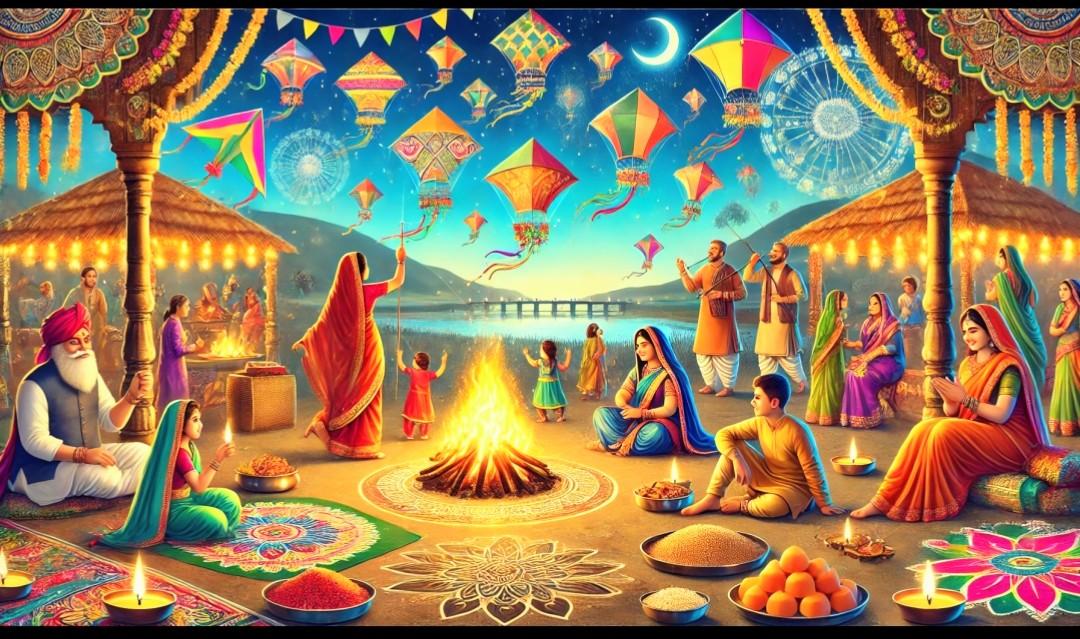Makar Sankranti: Celebrating Harvest and New Beginnings
Makar Sankranti, one of India’s most celebrated festivals, marks the transition of the Sun into the zodiac sign of Capricorn (Makar) and the onset of longer days. Celebrated annually on January 14th, this festival holds great cultural and spiritual significance, symbolizing new beginnings, gratitude, and the joy of harvest.
Historical and Cultural Significance
The festival is rooted in Hindu mythology and ancient practices. It is considered an auspicious day when the Sun moves from the southern hemisphere to the northern hemisphere, signifying the end of the harsh winter months and the beginning of a prosperous harvest season. Makar Sankranti is also linked to the agricultural cycle, marking the time when farmers reap their crops and celebrate the fruits of their labor.
Celebrations Across India
Makar Sankranti is observed with diverse traditions across the country, each adding its unique flavor:
Punjab: Known as Lohri, the festival is marked with bonfires, folk dances like Bhangra and Gidda, and traditional foods such as jaggery and sesame sweets.
Gujarat and Rajasthan: The skies are filled with vibrant kites during Uttarayan, symbolizing freedom and joy.
Tamil Nadu: Celebrated as Pongal, it is a four-day festival where families cook a special dish called Pongal, offer thanks to the Sun God, and decorate their homes with kolam (rangoli).
Maharashtra: Families exchange sweets made of sesame and jaggery, saying, “Tilgul ghya, god god bola,” which means “Accept these sweets and speak sweetly."
Bengal: The Ganga Sagar Mela is a major highlight, where devotees take a holy dip in the Ganges to purify their souls.
Rituals and Traditions
1. Kite Flying: A major attraction, especially in western India, symbolizes cutting away negativity and welcoming positivity.
2. Bonfires: Lit in northern regions, these signify warmth and the victory of light over darkness.
3. Special Foods: Dishes made of sesame (til) and jaggery (gur) are believed to provide energy and protect the body during the colder months.
4. Charity: People often donate food, clothes, and money to the underprivileged, reinforcing the festival’s message of gratitude and sharing.
Spiritual Essence
Makar Sankranti is not just a celebration of the harvest; it is also a time for spiritual growth. Devotees believe that bathing in holy rivers on this day can wash away sins, paving the way for enlightenment and a better life.
Modern-Day Relevance
In today's fast-paced world, Makar Sankranti serves as a reminder to pause, express gratitude, and celebrate the simple joys of life. It is a festival that unites people, transcending regional and cultural boundaries.
As the Sun embarks on its northward journey, Makar Sankranti inspires us to embrace change, spread warmth, and step into a brighter, more positive future.

